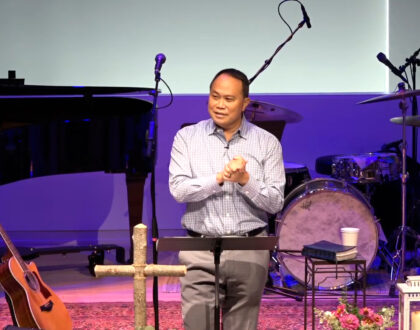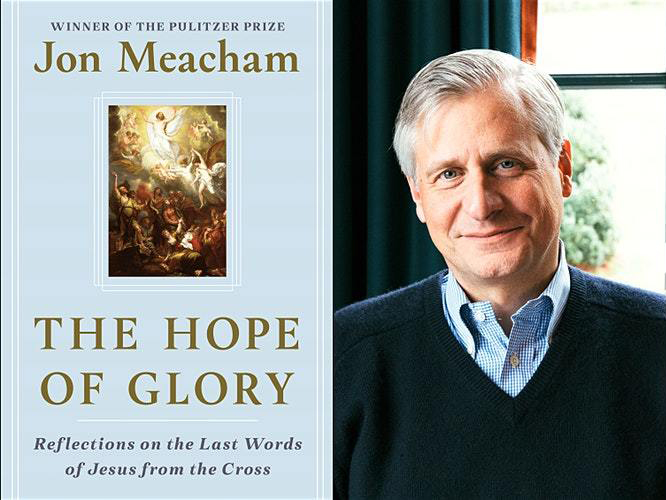The Final Words of Jesus
Presidential historian and Pulitzer Prize-winning author Jon Meacham has just published a new book titled The Hope of Glory. It is a reflection on the Seven Last words of Christ and our staff is currently reading it during the Season of Lent. In the Prologue of the book, he says this: “For Christians, the central truth of existence – our ultimate concern, in a phrase of Paul Tillich – is captured in the death and resurrection of Jesus. Without Good Friday, there is no Easter; without Easter, there is no deliverance from evil; without deliverance from evil, there is no victory of light over dark, of love over hate, of life over death.” As Christians, we are called to wrestle with the words and teachings of Jesus, and Lent is a perfect time to do that. That is why we are continuing our journey through the Gospel of John. On Good Friday this year (April 10), we will have our annual ecumenical service at noon with various Nashville clergy offering meaningful reflections. According to Christian tradition, these are the seven last words of Jesus found in the various gospels.
First Word: “Father forgive them for they know not what they do.” (Luke 23:34)
Second Word: “Assuredly, I say to you, today you will be with me in Paradise.” (Luke 23:43)
Third Word: “Woman, behold thy son!” “Behold thy mother!” (John 19:26-27)
Fourth Word: “My God, my God, why have you forsaken me?” (Matthew 27:46)
Fifth Word: “I thirst.” (John 19:28)
Sixth Word: “It is finished.” (John 19:30)
Seventh Word: “Father, into thy hands I commend my spirit.” (Luke 23:46)
We all struggle to make sense of these words yet we know that Good Friday is an integral part of the Christian faith. However, it is not an easy or comfortable part. There are many different atonement theologies and perceptions of the cross within the Christian world. Some make more sense than others. Meacham says, “Without reason, we cannot appreciate complexity; without appreciating complexity, we cannot rightly appreciate the majesty and mystery of God; and without rightly appreciating the majesty and mystery of God, we foreclose the possibility of the miraculous and redemptive.” I don’t know about you, but I do not want to live in a world or have a faith that forecloses the possibility of the miraculous and the redemptive. Meacham refers to Pilate’s profound question to Jesus when he asks, “What is truth.” That is a very important question, especially in our culture of spin and fact denial. Many simply long to know and live the truth. Jesus says that the truth will set us free. Meacham has this to say about the cross: “We kneel before the cross in homage to self-giving love, and the cross should serve as both rebuke and reminder – a rebuke to the world for its vanities and sins, and a reminder that at the center of the Christian story lies love, not hate; grace, not rage; mercy not vengeance. This is at least one answer to Pilate’s question about truth.”
As we continue our journey towards Easter, I challenge you to seek the truth in your own life. I challenge you to listen to the words of Jesus, reflect, and pray. These events of Holy Week that happened two thousand years ago changed the world, and if we allow it, can still change our hearts as well. But we must be open and vigilant. If we can remain focused during the Lenten Season and do the necessary reflection, Easter will have a profound meaning in our lives.
Recommended Posts

Political Violence is Never the Answer
July 25, 2024

“Messenger” – Justin Gung – July 14
July 14, 2024

Celebrating Woodmont’s 81st Birthday
July 10, 2024


